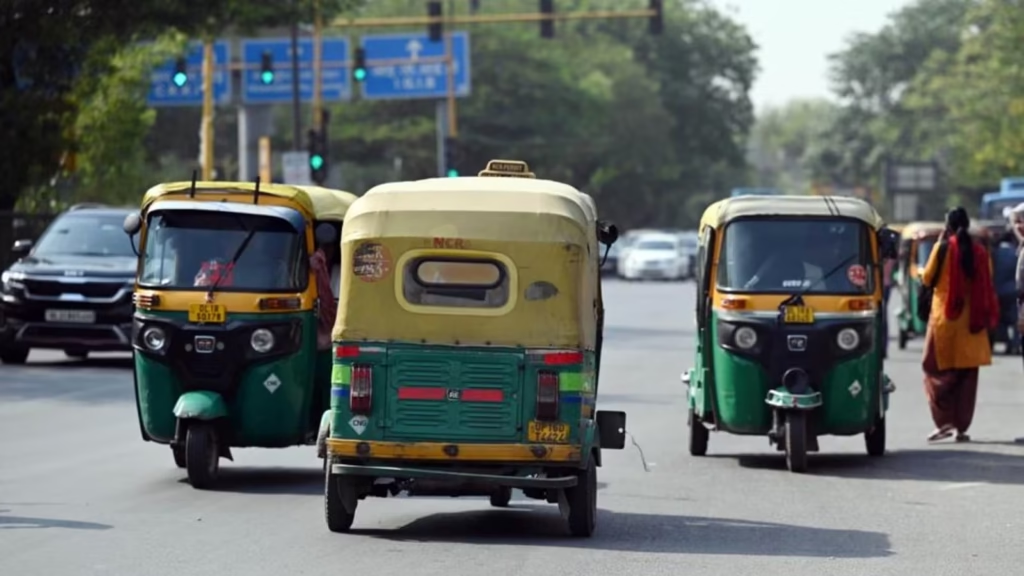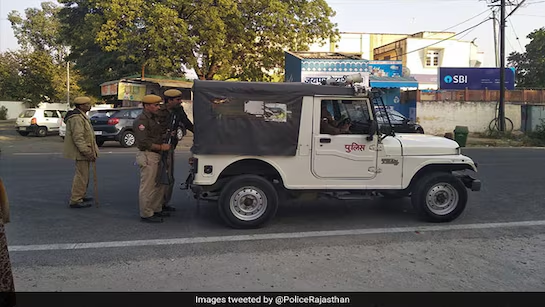Udaipur Police Department has imposed severe restrictions on the movement of tourist coaches within the city, citing ongoing infrastructure development work.
In a move that has sent shockwaves through the hospitality sector, the Udaipur Police Department has imposed severe restrictions on the movement of tourist coaches within the city, citing ongoing infrastructure development work. The decision, implemented without prior consultation with stakeholders, has been met with fierce opposition from the city’s travel and tourism industry, which warns of significant disruption, financial losses, and a tarnished reputation for the “City of Lakes.”
The Travel Agents Association of Udaipur (TAAU) has submitted a detailed representation to the Hon’ble Deputy Chief Minister of Rajasthan, appealing for immediate intervention and a temporary relaxation of the norms.

A Sudden Blow to the City’s Backbone
The core of the issue lies in the sudden enforcement of the restrictions, which the association claims was done without any discussion on alternate routes or mitigation strategies. Tourism is widely regarded as the economic lifeline of Udaipur, supporting a vast population directly and indirectly.
“The city’s iconic monuments, City Palace, Saheliyon Ki Badi, Jagdish Mandir, and Fateh Sagar—form the core of the organized foreign tourist circuit. For domestic travelers, attractions such as Moti Magri, Lok Kala Mandal, and Karni Mata Ropeway are equally vital. Cutting off access to these sites is like cutting off the city’s oxygen supply,” the representation states.
Key Points of Contention
The TAAU’s letter outlines several critical concerns:
Factual Inconsistencies and Legal Precedent: The association refuted a claim made in a meeting that tourist coaches are not permitted in Jaipur, clarifying that coaches are, in fact, allowed up to the City Palace there. They also cited a Sessions Court verdict from August 2015 that overturned a similar restriction, permitting tourist vehicles within the municipality zone, and requested this legal precedent be considered.
The Puzzling ‘No-Bus Zone’ at Saheliyon Ki Badi: The association has questioned the rationale behind declaring the road leading to Saheliyon Ki Badi—the second most visited monument in Udaipur—a no-bus zone. They argue that restricting access without viable alternatives severely impacts the tourist experience and local businesses dependent on visitor footfall.

Unfeasible Small Vehicle Suggestion: The authorities’ suggestion to replace large coaches with smaller vehicles has been deemed “unfeasible.” During peak season, around 20 coaches operate daily, carrying approximately 30 tourists each. Replacing them would require nearly 300 smaller vehicles, a proposition the association calls an “unmanageable load” on a city already grappling with the construction of two flyovers.
Safety and Liability of Alternate Routes: The police-proposed alternate route via Nayakheda has been flagged as unsafe, especially at night. The TAAU has raised a critical question: in the event of a mishap involving foreign nationals, would the department assume responsibility for the severe reputational damage to Udaipur as a safe destination?
Proposed Solutions: A Path Forward
Instead of a complete ban, the TAAU has proactively charted out detailed alternate routes for the administration’s consideration. These include:
- Routes from City Palace to Saheliyon Ki Badi: Suggestions via Shastri Circle, Chetak Circle, and Swaroop Sagar.
- Routes for Jodhpur Arrivals: Separate paths for coaches heading to Mallah Talai hotels and the City Palace area, utilizing corridors like Amberi, RK Circle, and Durga Nursery Road.
- Routes from the Airport: Clear pathways from the Airport via Pratap Nagar and other circles to ensure seamless access to hotel clusters.
A Plea for Balanced Development
The travel body has expressed its full support for the city’s infrastructure development, including the construction of flyovers, acknowledging the need for long-term improvements. However, they argue that a “complete stoppage” is not a sustainable solution.
Drawing a parallel, they noted that despite ongoing renovations at the Udaipur Railway Station and Airport, operations have continued uninterrupted, demonstrating that development and functionality can coexist.
Appeal to the Administration
In their concluding appeal, the TAAU has humbly requested the authorities to engage in a dialogue with stakeholders, review the proposed alternate routes, and ensure that tourism continues to flourish without compromising safety, legality, or livelihoods.
“As an interim measure, we humbly appeal for the temporary relaxation of tourist coach movement restrictions to ensure uninterrupted tourism operations and safeguard livelihoods,” the letter pleads.
The ball is now in the court of the administration. The travel and hospitality industry of Udaipur waits with bated breath, hoping for a constructive outcome that preserves the city’s status as a premier global destination while navigating the necessary pains of urban development.

